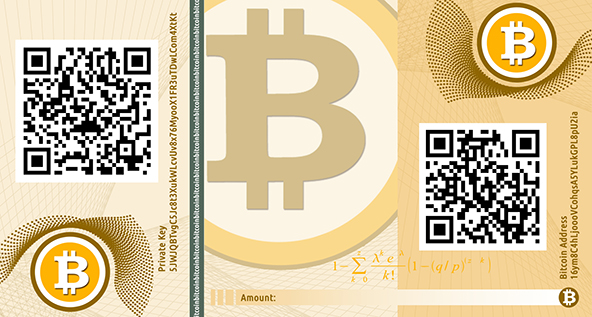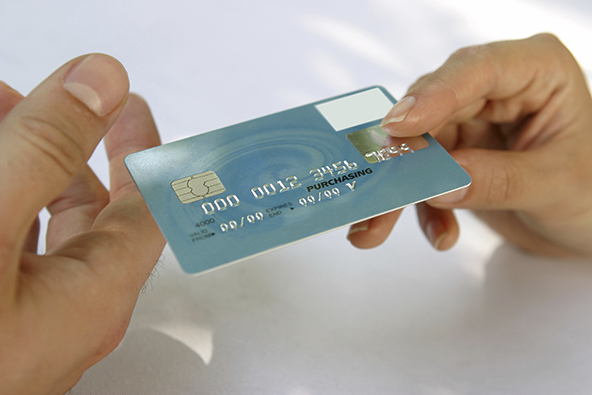On the ‘Dubious Economics’ of Using Bitcoin as a Currency

Much has been written about Bitcoin — the world’s best-known virtual currency — over the past few months. However, most of the media’s attention has been focused not on Bitcoin’s viability as a medium of exchange, but rather on the meteoric rise and then fall of its value against the dollar and other central bank-backed currencies. People, it turned out — presumably to the horror of the currency’s anonymous creators who have been getting god-like treatment in absentia — viewed Bitcoin not as an alternative currency, but as an investment — a way to make money in the form of dollars, yen and euros — the very rigged currencies the digital newcomer was meant to replace.
And then came something I’ve long been expecting to take place — the Department of Homeland Security launched an investigation of Bitcoin’s biggest exchange (named Mt. Gox) and served a warrant upon Dwolla — a mobile payment processor — with respect to accounts used for trading with the exchange, in effect freezing the accounts. I think that the accounts in question may never see daylight again and believe that there will be a lot more governmental action to come, and not just in this country. A couple of months ago I wondered how “an online gambling transaction may be considered illegal in the U.S. if conducted in dollars, but if you converted the dollars into Bitcoin, it would all be OK.” Of course, I could have chosen to use in my example a transaction involving illegal drugs, nerve gas, enriched uranium or nuclear waste, but my point was that the U.S. authorities were bound to act, as are their counterparts in Europe and elsewhere. And now the question that interests me the most is whether there is any future for Bitcoin as a currency. While I am not quite ready to write it off completely, I am highly skeptical of the currency’s prospects.
Bitcoin’s ‘Dubious Economics’
Here is how The Washington Post’s Neil Irwin summarized, I think correctly, the vision of Bitcoin’s creators:
It is a digital currency, which a certain variety of techno-utopian futurist crowd views as a form of money unencumbered by the shackles of privacy-reducing international anti-money laundering laws and inflation-tolerant central banks.
Or as James Surowiecki put it, Bitcoin is:
a peer-to-peer electronic currency uncontrolled by central bankers or politicians [which is] is a perfect object for the anxieties and enthusiasms of those frightened by the threats of inflation and currency debasement, concerned about state power and the surveillance state, and fascinated with the possibilities created by distributed, decentralized systems.
And so, to protect people against the vile intrusions of the likes of politicians and central bankers, Bitcoin’s creators fixed the total quantity of the digital currency that would ever be “minted”, letting its value against traditional currencies float. In effect, as Paul Krugman noted almost two years ago, “Bitcoin… created its own private gold standard world, in which the money supply is fixed rather than subject to increase via the printing press.” So the Bitcoin guys had revived a concept that was thoroughly refuted decades ago.
But there is more. It was again Paul Krugman who directed my attention toward the practice of “mining” Bitcoins “by expending real resources”, which he thought “amounts to a drastic retrogression — a retrogression that Adam Smith would have scorned”, proceeding to quote Smith himself:
The gold and silver money which circulates in any country, and by means of which, the produce of its land and labour is annually circulated and distributed to the proper consumers, is, in the same manner as the ready money of the dealer, all dead stock. It is a very valuable part of the capital of the country, which produces nothing to the country. The judicious operations of banking, by substituting paper in the room of a great part of this gold and silver, enable the country to convert a great part of this dead stock into active and productive stock; into stock which produces something to the country. The gold and silver money which circulates in any country may very properly be compared to a highway, which, while it circulates and carries to market all the grass and corn of the country, produces itself not a single pile of either. The judicious operations of banking, by providing, if I may be allowed so violent a metaphor, a sort of wagon-way through the air, enable the country to convert, as it were, a great part of its highways into good pastures, and corn fields, and thereby to increase, very considerably, the annual produce of its land and labour.
Mind, Smith wrote this more than two centuries ago! Yet, however economically unsound as a concept, Bitcoin could still dominate those gray areas that are off-limit for the dollar, yen and euro, couldn’t it?
Bitcoin as a Currency
Being in the industry I am, I have primarily been interested in Bitcoin as a currency to be used in transactions that cannot be conducted in any real-world currency. I mean, if a strategy could be devised to enable consumers to freely and easily convert the dollars locked into their credit cards for Bitcoin through a Mt. Gox-like exchange and then use the digital currency to make purchases on websites which are completely legitimate, but are nonetheless not allowed to take credit cards directly, business could flourish. Of course, much as I may have wished otherwise, it was obvious that such a thing could not possibly be allowed to take place, and rightly so. And then came the Department of Homeland Security’s action.
But if Bitcoin can be legally used only where dollars or euros can also be used, what is the point of having it? I’ve seen anonymity cited as an advantage, but have also read reports that Bitcoin usage is not quite as anonymous as advertised. And anyway, if you can only use the digital currency on ordinary websites (as opposed to the likes of Silk Road), as it should be the case, where exactly is the anonymity advantage to be found? I don’t quite see why you would want to hide your identity when making a payment on WordPress, but if the concern is protecting your personal information from being stolen by hackers, Bitcoin once again does not offer an attractive alternative, quite the contrary. Leaving aside the fact that PayPal and many other payment service providers allow you to make payments without releasing any information about your person or credit card accounts, even having your credit card details stolen is not really an issue, as cardholders are fully protected against fraud (card issuers and merchants share the losses instead). Bitcoin users, on the other hand, use the digital currency at their own peril — if you have your Bitcoin stolen, there is no one to reimburse you. So, once again, what is the point?
The Takeaway
So I just don’t see a logical case in favor of Bitcoin. Yet, I am not ready to write Bitcoin’s obituary quite yet. I think that, whatever arguments may be raised against it, the “techno-utopian futurist crowd” that The Washington Post’s Neil Irwin sees as the currency’s main champions will remain unequivocally behind it. After all, they see Bitcoin as our last bulwark against “the shackles of privacy-reducing international anti-money laundering laws and inflation-tolerant central banks.” How can you not support such a noble cause?
Image credit: Wikimedia Commons.



The privacy folks and anti-central bankers, ?Ç£techno-utopian futurist crowd?Ç¥ etc all have solid reasons for getting behind technology because there has been little true innovation in the monetary area that is solving or reducing friction in the area of value exchange. Bitcoin is unlike anything that has come before it.
Just the size of the computational power and that it is a Protocol like email, rss, tcp, html will make it very special. The folks that you help can do business with anyone they would like to anywhere in the world and could use a service like Bitpay and never have to touch a bitcoin or deal with the exchange rates for less than .05% transaction cost. No chargebacks. Also the Bitcoin protocol will make services like theirs even useless over time and adoption.
Bitcoin can do so much more non-3rd party escrows, notary and property rights assignments and corporate treasury management it is just starting … the brainpower being used in this area is unmatched in any open source software projects.
This genie is not going back in the bottle, it maybe a Bitcoin son or daughter that will evolve to maturity over time but it will all date back to this network. Friction in the money business is going to get a beating just like tech did to media, music, knowledge, and power. Never in the history of the world can an open ledger system that logs and transacts all activity that can be verified by tens of thousands of computers that is unhackable at its core.
P2p is the tech that is important here, and the machines over time is going to continue to chew up the companies who will not evolve or have the skills or people to adapt- Digital Darwinism.
So now what mankind needs to learn is a new skill and that is understand that change is happening and we have to get better at handling it, so we can evolve and improve things with less societal disruption. Yeah I know I must be one of those >>?Ç£techno-utopian futurist crowd?Ç¥ folks you were talking about. Peace
Steven,
The evolution of technology is not the issue here, it’s the concept behind Bitcoin and the other digital money projects that is unsound and I have explained why in my post. In regards to Bitcoin’s no-chargeback promise, I have explained why this cannot possibly last beyond the concept’s embryonic stage (if Bitcoin can survive it) here.
See, you may not like the way the established payment processing system works, but that’s not going to make Bitcoin any more viable.
Thanks for an interesting post. I’m a bitcoin enthusiast, and have watched the bubble rise, pop, bounce and decline. The hope of course is for stability and with that utility. Government and established financial regulators cutting the lines of exchange is IMHO in the community’s interest. It won’t kill the speculators, but it leaves folks to trade both services and knowledge.
The observation that Bitcoin has much in common with a gold reserve is quite valid, it is by design, a design with subtly different rules from both material reserves and fiat currencies. Pass?? or not the gold reserves still exist and plenty of institutions sit on tones of the stuff.
Lets say there was no formal points of exchange between Bitcoin and fiat currencies. Would BC cease to exist or would it remain a rather frictionless currency alternative? All that should happen with that kind of regulation is the point of exchange moves towards the individuals spending ‘real’ money bottling electricity (mining) or trading goods or services.
Whilst the protocal remains sound and Bitcoins have utility it will survive. Crypto currencies could wipe out the dollar, euro, pound et al in a few generations. I the meantime it puts the focus on nation states and the financial oligopolies to remain relevant or die off. It is also bloody interesting to watch evolve.
You can get Bitcoin by accepting it as a payment for goods and services. There are also several ways you can buy Bitcoin.